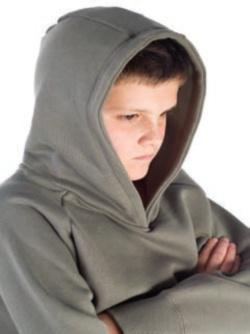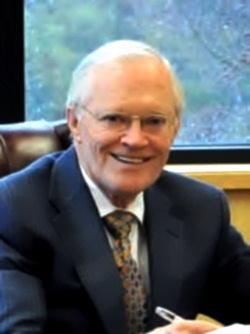Commonwealth
Where did the word "commonwealth" come from? It was first used in England as early as the fifteenth century as two words, "comen weal."
Was the British Empire nothing more than the tyrannical regime many modern historians would have us believe? Whatever is written, the fact remains that the post-imperial organisation it spawned is a model of international harmony. The Commonwealth of Nations is now 60 years old and spans the globe. Well may the sun have set on the British Empire, but its successor is a beacon of light in a world where other international bodies are often stymied by factionalism.
Currently one-third of the world's population resides within the Commonwealth. With 2.1 billion people in 54 countries, it is the largest international organisation after the United Nations. There are representative countries from all of the six inhabited continents—and with British, Australian and New Zealand bases in Antarctica, all seven continents are represented. The small African country of Rwanda has been the latest to sign up as recently as November 2009.
What do the member states of the Commonwealth have in common? For most, it is the English language. Speaking English has given many Commonwealth citizens access to the best in technological and scientific information. Computer experts from the Indian sub-continent have found employment in information technology all over the world. Young Australians, New Zealanders and South Africans flock to London where their work ethic is valued. Malaysians have found work across the globe.
What Is a Commonwealth?
The word "Commonwealth" carries an obvious meaning, namely that the wealth of a country is shared amongst its people. But the meaning goes even further than that. It implies the privilege of those living within its beneficence to exercise free speech and enjoy other rights of human dignity.
Where did the word "commonwealth" come from? It was first used in England as early as the fifteenth century as two words, "comen weal." This can best be understood as "common good" and was adopted by the puritans led by Oliver Cromwell as Lord Protector. King Charles I was beheaded by the English parliament because of his claim to "divine right" to rule, which went against the principles enshrined in 1215 in the Magna Carta. This led to the establishment of parliamentary rule, where the eleven-year interregnum was called for part of the time, the "Commonwealth" in England. After the "Glorious Revolution" of 1688, William and Mary upheld the right of Englishmen to rule themselves through parliament while at the same time declaring allegiance to the sovereign.
The Modern Commonwealth
Following World War II, most of the former British colonies were granted self-government in what was in most cases a peaceful transfer of power. Most of the new leaders voluntarily joined the body now called the Commonwealth of Nations. Its name was formerly the British Commonwealth; it had come into being in 1931 to accommodate the concept of a family of independent Anglo-Saxon-Celtic nations being as one in the dominions of the former empire.
Membership in the body is voluntary, but requires member states to acknowledge Queen Elizabeth II as head of the Commonwealth. Each nation must support the principles of fair and open government with free elections. If the body politic considers a fellow member state to be operating outside of the "common good" of its people, membership can be revoked. Zimbabwe is currently suspended from the Commonwealth. Fiji is also outside of the body since a 2006 coup.
What is it that has created such a spirit of good will amongst the members of the Commonwealth? As an Australian, I have always felt a keen sense of unity with those I meet from around the world. Wherever one travels, it is not long before one encounters a Sri Lankan or a South African or a Brit. The topics first mentioned may be cricket or rugby, where scores of the latest match are memorised like venerated oral history. Even cricket contests played years before can be remembered, as if it is important to know who were the "greats" of bygone days. There is good-humoured rivalry where winning is not as important as brotherly respect.
Ancient Origins
It is fascinating to understand that the Bible speaks of this brotherhood of people in our age through an incident that took place in Egypt more than three-and-a-half thousand years ago.
Long-time readers of Tomorrow's World will be familiar with the biblical narrative given to us in Genesis 48. Here we find the story of Jacob (Israel) blessing the two sons of Joseph—Manasseh and his younger brother Ephraim. Joseph held a government post in Egypt—essentially the equivalent of Prime Minister under Pharaoh—and had asked his father Jacob to bless the lads.
Jacob reached out his arms, but then knowingly crossed his arms so as to place his right hand—indicative of the greater blessing—on Ephraim, the younger son.
This surprised Joseph, who tried to correct his father and have the greater blessing placed on the firstborn Manasseh. But Jacob refused, saying of Manasseh: "He also shall become a people, and he also shall be great; but truly his younger brother [Ephraim] shall be greater than he, and his descendants shall become a multitude of nations" (Genesis 48:19).
Many of the sons of Israel who came to be known as the so-called "lost ten tribes," in due course migrated along several paths to parts of northwest Europe and the British Isles. The descendants of Joseph who settled mainly in England were known as Saxons—"sons of Isaac."
Many of Manasseh's progeny living beside their brother Ephraim sailed primarily from the east of England and colonised what is today the United States. Eastern English cities like York, Boston, Cambridge and Lincoln lent their names to cities in the Americas.
In the last 300 years, great numbers of British settlers have also crossed the seas to New Zealand, Canada, Australia and South Africa where they have become a "multitude of nations."
Amongst those who settled in other parts of the British Empire there are also descendants of Ephraim. Consider the English, Scottish, Irish and Welsh names given to people in the Caribbean.
Some of these people can trace their roots not just to Africa but also to the British Isles. Race and colour are not factors for membership in the Commonwealth. The Apostle Paul wrote of the "commonwealth of Israel" (Ephesians 2:11–13) being open to the Gentiles, as today's Christians of all backgrounds become part of "spiritual Israel." Likewise, a time will soon come—under Jesus Christ's millennial rule in the Kingdom of God—when each separate nation, with its individual characteristics and strengths, will be welcomed as a member of the worldwide commonwealth of nations.
Prophecy tells us of a time when God will use the special talent of future Ephraim to take His way of life to the far-flung lands of the world, when Jesus Christ will be ruling the earth. One may recall the words of "Land of Hope and Glory," penned by A. C. Benson in 1902 and set to music by Sir Edward Elgar:
"Land of hope and glory, mother of the free, How shall we extol thee, who are born of thee? Wider still and wider, shall thy bounds be set; God who made thee mighty, make thee mightier yet."
To learn more about the glorious Kingdom of God, which Jesus Christ will soon establish for all the peoples of the earth, write to the Regional Office nearest you (listed on page 30 of this magazine) or go online to www.tomorrowsworld.org to request your free copy of The World Ahead: What Will It Be Like?






